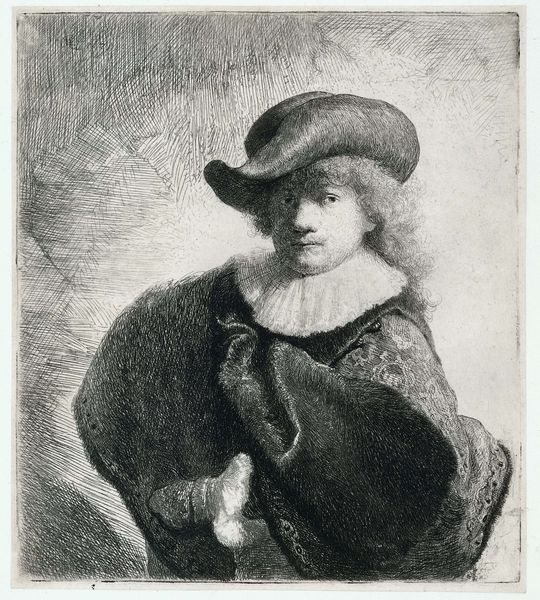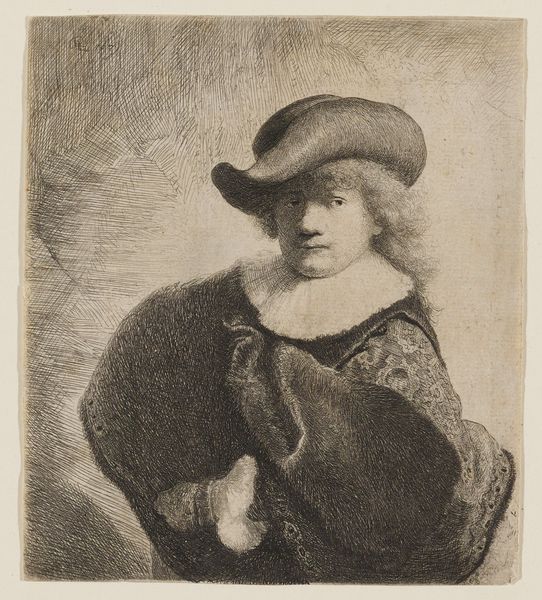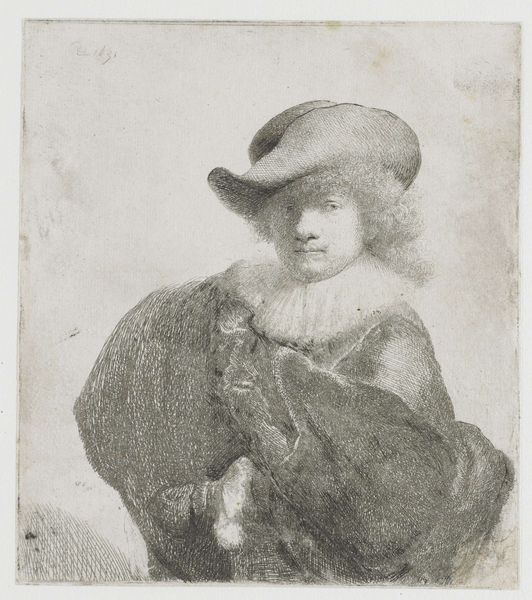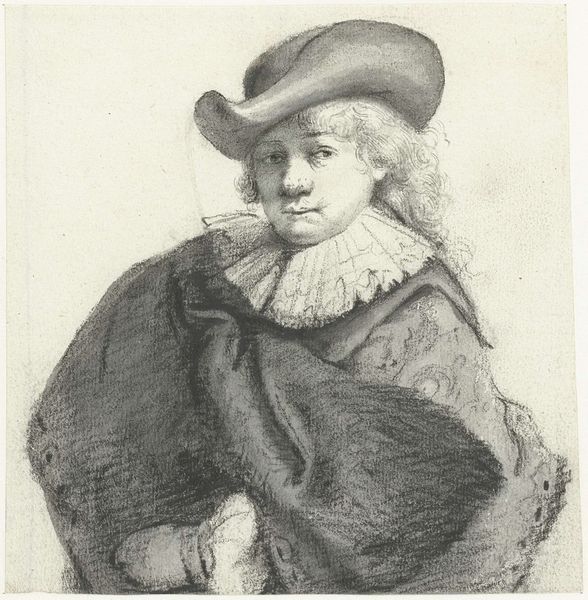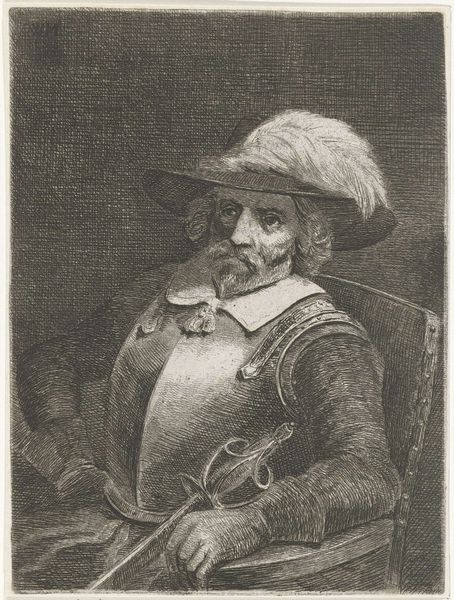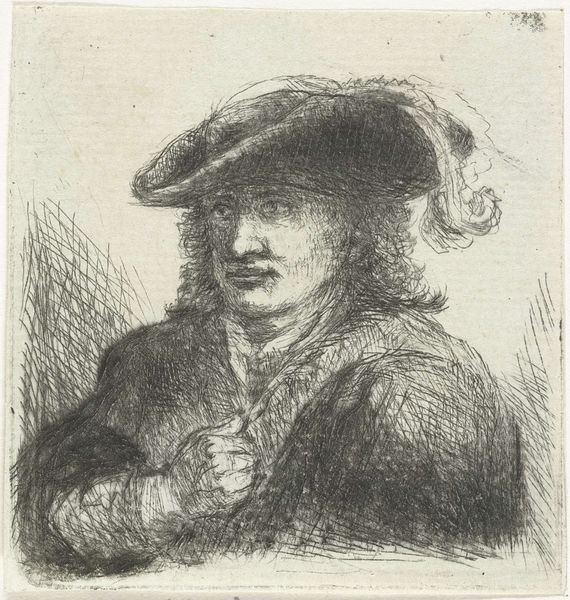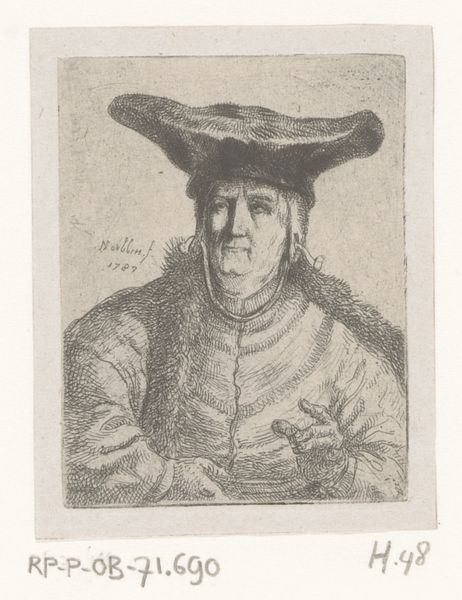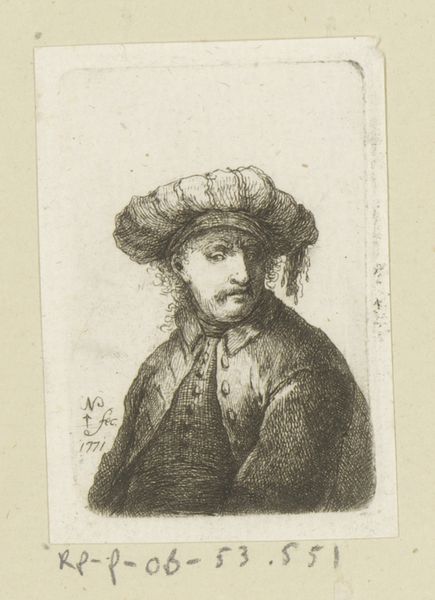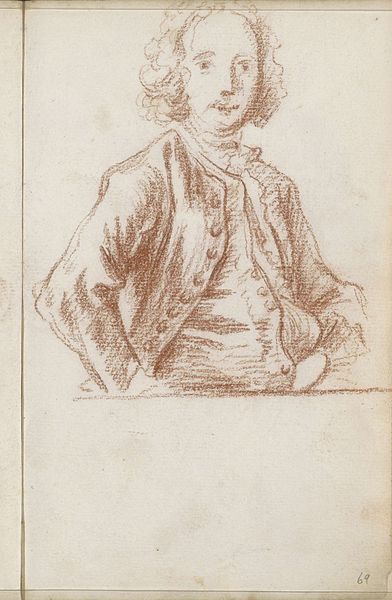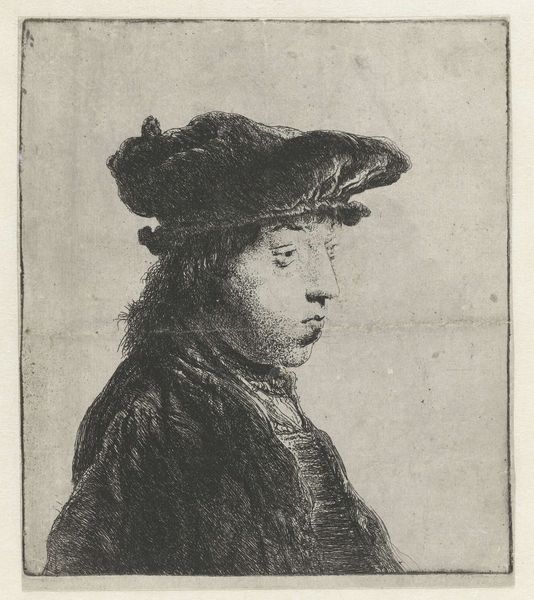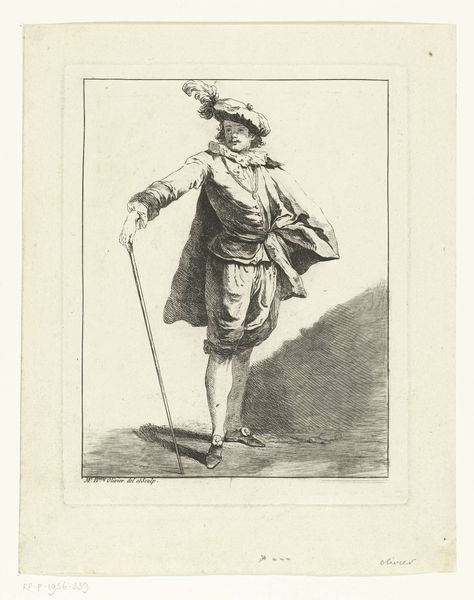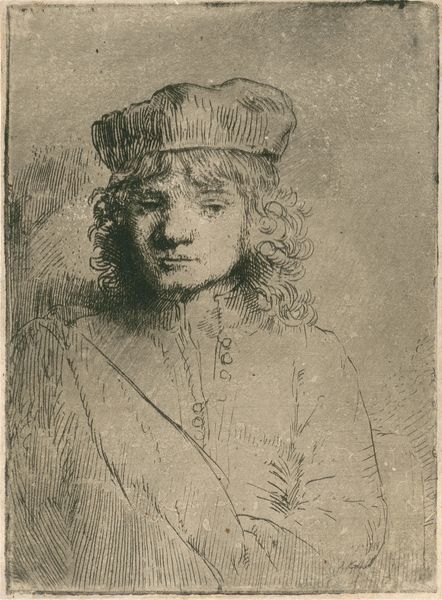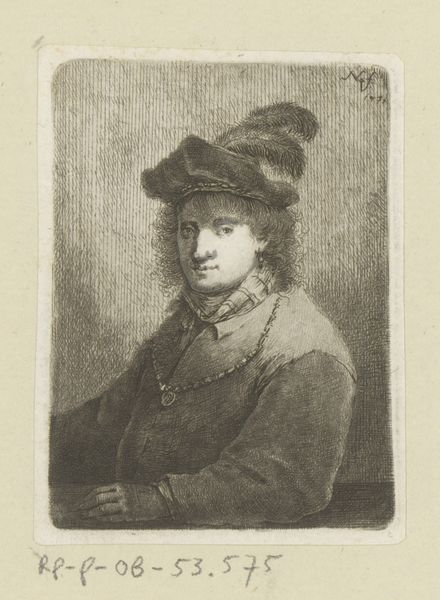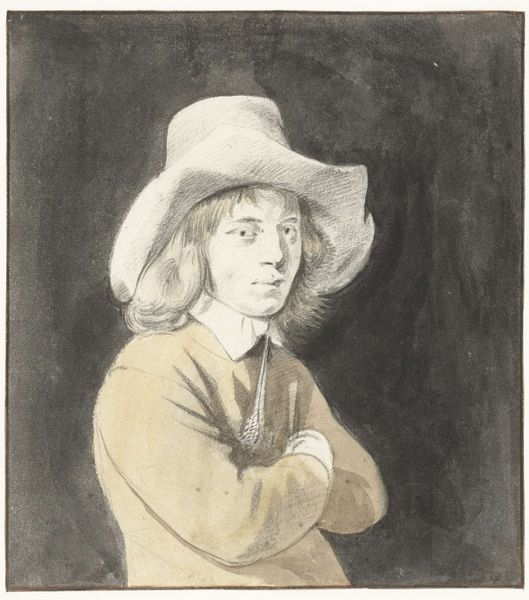
graphic-art, print, etching, intaglio
portrait
graphic-art
self-portrait
baroque
dutch-golden-age
etching
intaglio
charcoal drawing
pencil drawing
Dimensions: height 148 mm, width 131 mm
Copyright: Rijks Museum: Open Domain
Curator: Here we have Rembrandt van Rijn’s “Self-portrait in a soft hat and a patterned cloak,” etched in 1631. It’s currently held in the Rijksmuseum collection. Editor: It feels… introspective, doesn't it? So much swirling texture—the cloak seems to swallow him a little. You’re drawn right into his face, but he remains slightly detached. Curator: Exactly. Look at the meticulous use of line! The hatching creates depth, giving his cloak and hat that lush, almost tangible feel. Think about the physical act: pulling the etching needle across the plate, pressing the paper, each print a physical embodiment of Rembrandt’s process. Editor: It’s amazing how he transforms basic materials like copper and ink into this detailed self-representation. And consider how readily accessible prints were— multiple originals. I imagine these circulated widely, almost like proto-selfies shaping Rembrandt’s brand. Curator: He's consciously crafting his image. That hat, the cloak... they’re almost props. Costume wasn't just decoration, it signaled identity, success... ambition! He wasn't from a noble family. His etching technique helped make it available to anyone interested. Editor: And I love thinking about where those materials came from, and the workshops. Did Rembrandt have assistants? Did the print seller and the artist collaborate? What does that imply about authorship? Curator: Intriguing points! I find myself considering his youthfulness. A sense of daring and self-assuredness that would evolve later in his more weathered self-portraits. Editor: It brings up an interesting idea about celebrity and image. The mechanics, even in the 17th century, reveal the ambition and enterprise behind the art and the persona. It becomes a commentary about labor, craft, ambition, even social status. Curator: You know, looking closely at this, I feel that capturing a human is capturing a thousand souls… or versions of ourself! A little melancholic, no? Editor: Indeed. Next time you’re trying to construct a 'selfie', think about Rembrandt’s choice of medium and image here. He has given us much more to consider when thinking about our sense of selves, not just now but also generations back.
Comments
No comments
Be the first to comment and join the conversation on the ultimate creative platform.
